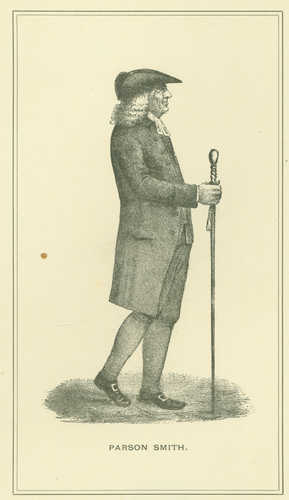Keywords: Unitarian
Item 22414
Unitarian Church, Saco, ca. 1890
Contributed by: Dyer Library/Saco Museum Date: circa 1890 Location: Saco Media: Print from glass negative
Item 21367
Sanford Unitarian Church, ca. 1918
Contributed by: Sanford-Springvale Historical Society Date: circa 1918 Location: Sanford Media: Print from Glass Negative
Exhibit
Rum, Riot, and Reform - Drinking Implements
"… of the The First Parish in Portland, Maine Unitarian Universalist This mug was presented to Reverend Deane of First Parish Falmouth (now Portland)…"
Exhibit
Rum, Riot, and Reform - Acknowledgements
"… Cochrane The First Parish in Portland, Maine Unitarian Universalist W. L. Frost Dave Evans, The Great Lost Bear William B. Jordan, Jr."
Site Page
Presque Isle: The Star City - Unitarian Church, Presque Isle, 1895
"Unitarian Church, Presque Isle, 1895 Contributed by Mark & Emily Turner Memorial Library Description The Unitarian Church was erected in…"
Site Page
Farmington: Franklin County's Shiretown - North Church
"In 1830, the Unitarian Society was established, and in 1836, the Society formed a church by admitting eight members to fellowship, six of which were…"
Story
Reverend Thomas Smith of First Parish Portland
by Kristina Minister, Ph.D.
Pastor, Physician, Real Estate Speculator, and Agent for Wabanaki Genocide
Lesson Plan
Longfellow Studies: "The Poet's Tale - The Birds of Killingworth"
Grade Level: 6-8, 9-12
Content Area: English Language Arts, Science & Engineering, Social Studies
This poem is one of the numerous tales in Henry Wadsworth Longfellow's Tales of the Wayside Inn. The collection was published in three parts between 1863 and 1873. This series of long narrative poems were written by Longfellow during the most difficult personal time of his life. While mourning the tragic death of his second wife (Fanny Appleton Longfellow) he produced this ambitious undertaking. During this same period he translated Dante's Inferno from Italian to English. "The Poet's Tale" is a humorous poem with a strong environmental message which reflects Longfellow's Unitarian outlook on life.











